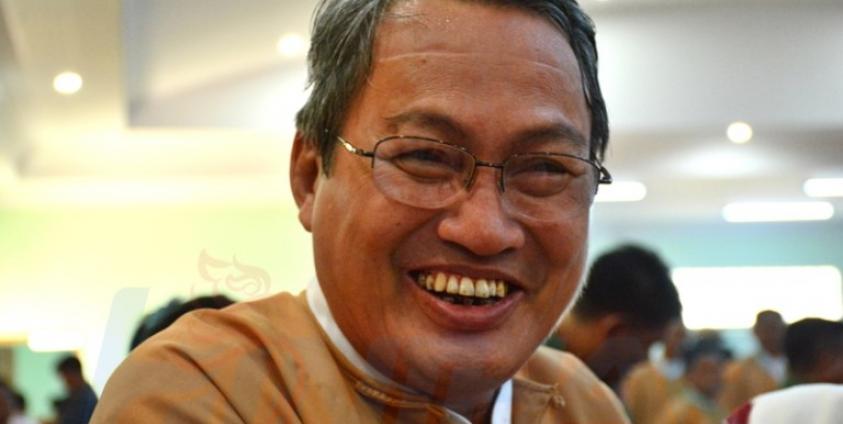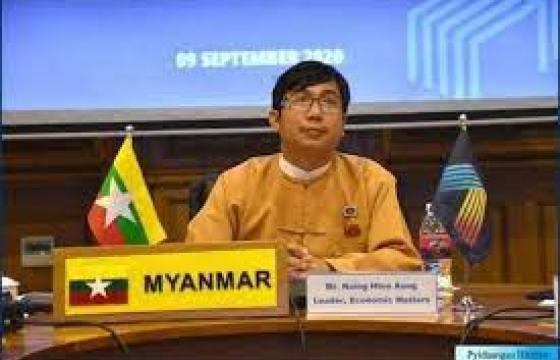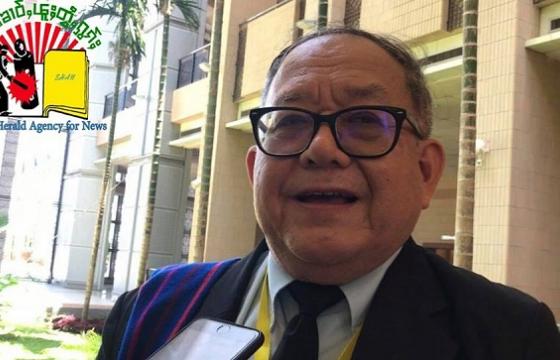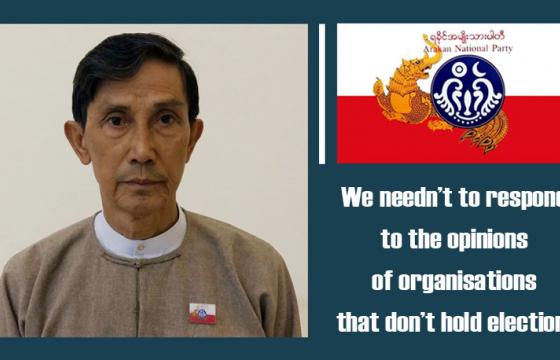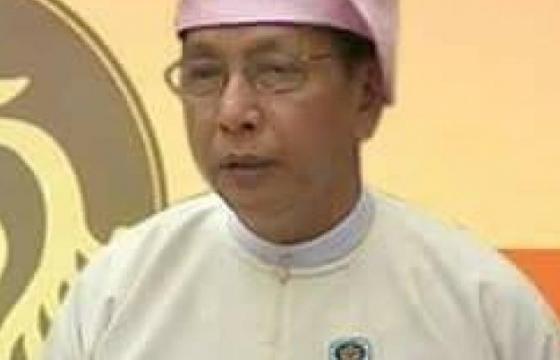Newly appointed Mon State Chief Minister U Aye Zan scored his first major political victory in the 1990 election, when he was elected as a National League for Democracy member for Kyaikto Township. When the results of the election were annulled, U Aye Zan served as chair of the NLD’s Kyaikto office. In the 2015 election, 63-year-old U Aye Zan contested and won the Kyaikto [Township] No. 2 seat in Mon State Hluttaw.
Last month, former Chief Minister U Min Min Oo resigned amid a controversy over alleged misconduct. On March 1, the NLD installed U Aye Zan as the state’s new chief minister.
Hinthar Media reporters Shwe Zin and Khit Min recently sat down with U Aye Zan to discuss what he sees as the challenges of his new role, and how he will work to improve Mon State.
Hinthar Media: What challenges do you expect to face as the new chief minister?
Chief Minister: There are a lot of challenges. Mon State has drug issues and corruption issues. There are many farmland cases, and in the villages some people who are in power seize the land illegally. The major concern for the state is the quarries. These quarries should be mined in accordance with the law, but now the law is still in the process of being updated. Mining companies must have permits for production. Mining projects that use explosives must also have special permits. But some companies lack permits and are going ahead anyways. This industry must be changed through a legal framework.
Mon State is very diverse: there are Mon people, and also Bamar people, Karen people and Pa-O people. So unifying all these ethnic groups is important.
As I see it, my role is to develop the state. Summer is drawing to a close. Last year, regular access to drinking water was a very big problem. Making sure everyone has water to drink should be our number one [development] priority and should be completed in one to two years so that those who are now relying on donations for their water can have regular access to their own clean water.
As far as state development goes, there are many sectors, such as energy that are in need of improvement in order for business and industries to be able to operate properly. Basic roads and buildings are needed. We must also work hard to provide more job opportunities, creating 200,000 more jobs within the next five years, at least.
Hinthar Media: There has been much controversy over the intended name of the bridge connecting Mawlamyine to Chaungzone. What will you do about this problem? [***]
Chief Minister: There was some contention regarding the bridge naming. It should be addressed in a sensible and democratic matter. Bogyoke Aung San formed the Pyidaungsu (Union) state in 1947. Under British colonial administration, Myanmar was divided into a [Bamar] lowland and ethnic highlands, which included Shan State, Chin State, and parts of Karen State, up to Kawkareik district. We should be very relieved that Mon State is now part of a unified Union, and not divided between different administrations. But that historical division creates potential conflict between ethnic groups, so we need to be cautious and confirm the majority public opinion. We have only recently been freed from living under a military government. People need to be careful not to threaten unity or abuse democratic processes.
Hinthar Media: What are you planning to do to amend the law regarding the formation of municipal committees, which has also come under fire?
Chief Minister: On this subject, I was involved in drawing up the law as a [Mon State] Hluttaw representative. There are a few issues remaining to be resolved, but it will be completed soon.
Hinthar Media: What are your objectives for improving education in the state?
Chief Minister: Mon State stands among the best in Myanmar for our results on the 10th standard exam. We are still working to implement the Union government’s five-year program to ensure jobs for students who completed their education from kindergarten through high school. We will appoint more government staff to be able to achieve our goals in education and employment.
Hinthar Media: How do you plan to engage with the public in Mon State?
Chief Minister: I will hold face-to-face meetings every month with members of the public to answer their questions. There will be representatives from the government, and also from other relevant ministries present. By holding regular discussions, we will gradually change the relationship between government and citizens. As I’ve said in the past, the power of public administration should not be held only in the hand of government officials, but shared with the public as well.
Hinthar Media: Mon State has two active armed ethnic groups. How do you plan to cooperate and manage a relationship with them?
Chief Minister: We have two plans, one for the group [the Karen National Union] that signed the [October 2015] Nationwide Ceasefire Agreement (NCA), and another [the New Mon State Party] is the non-NCA group. Although it is not a ceasefire signatory, it has signed other peace agreements with the government in the past, so for each group, we will carry out the implementation of their respective agreements. But we will make sure no one abuses the peace process for personal profit. We will adhere to the law in carrying out the agreements.
Hinthar Media: Do you have any parting message for the people of Mon State?
Chief Minister: I would like to urge the public to be open-minded about future endeavors. The government will only be able to develop and improve the state with the full support and cooperation of the public.
[*** Editor’s note: The Mon State Ministry of Construction had originally intended to name the two-lane, K60 billion (US$44 million) bridge over the Thanlwin (Salween) river after independence hero Bogyoke Aung San, but according to local media reports, authorities faced backlash from Mon groups, which preferred the bridge honor a local historical figure. Mon State Natural Resources and Environment Minister U Min Kyi Win has since said that the state would not name the bridge after Bogyoke Aung San, unless it was supported by the Union government, The Myanmar Times reported on March 7. The bridge was slated for opening on February 13, but it was delayed due to the naming dispute.]
Translated by Aong Jaeneh
Edited by Laignee Barron for BNI

